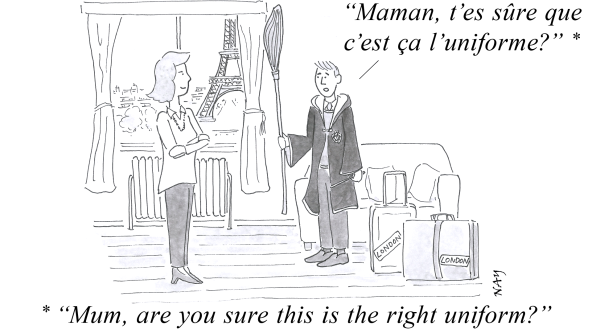Finding a nursery abroad

Choosing a nursery is one of the first major decisions a parent has to make. It’s daunting enough on home territory, but making the choice in a different country, in a new language, against a background of unfamiliar laws and regulations, can be a complete challenge.
Some overseas schools are inspected and accredited by international organisations as well as being obliged to comply with local laws. But when it comes to overseas nurseries, beware: many are unregulated, particularly those outside Europe.
This may not be an ominous sign: in the country you move to, locals may recommend a kindly lady minding children in her own house and garden, who offers a safe refuge, fun and games, and a happy environment with no legislation or rules to worry about. But families moving to an unfamiliar country, especially those used to highly regulated nurseries at home, may well feel the need for basic standards if they are to put their child into the care of people they don’t know.
A lack of official recognition and accountability may make parents uneasy, even if the place seems
fine at first glance. Parents may sense that staff are being unduly secretive or have a vague reluctance to answer basic questions is — always a sign that something is not quite right at any nursery or childcare premises.
The most important guide when handing over your child to the care of others is your own instinct. Many establishments tick all the boxes and may have excellent PR — but if you don’t feel comfortable about the ethos, the staff or the atmosphere, then think again.
The most important guide when handing over your child to the care of others is your own instinct.
It’s up to you; a young child may be unable or unwilling to convey to its parents that something is wrong at a nursery; they haven’t yet acquired the vocabulary or the experience to be able to explain what’s worrying them.
Researching a nursery place overseas
So how do you start?
Here is a basic 10-step guide to help you. It doesn’t cover every aspect of nursery standards and you will add your own questions (for example about food and drink or clothing perhaps) but if a nursery ticks the following boxes then the chances are that at least the basics are covered.
Are there local standards for nurseries and does the nursery comply with them? Do they provide reports and who writes them – an official inspector or the nursery itself?
Do staff require criminal record checks and references and do foreign nationals applying for jobs have immigration and background checks?
Are staff trained and qualified?
What is the ratio of supervisors to children in the various age groups? UK standards require the following ratios of staff to children – under 2-year-olds: one carer to three children; 2- to 3-year-olds: one carer to four children; 3- to 5-year-olds: one carer to eight children.
Are the premises clean and spacious enough for the number of children? Are books, toys, and non-toxic play materials in evidence?
Are the toilets, hand-washing facilities, and eating areas clean and easily accessible by young children?
Are the premises secure, with locked gates and a buzzer entry? Can a child leave the premises without supervision?
Does the nursery carry out fire/earthquake drills?
Are contact sheets with ambulance/doctor/hospital details on display?
Are parents’ contact details readily available in an emergency (not just on a computer)?
An ideal nursery may also offer the following:
The nursery is accredited (for example, by the Montessori organisation or linked to a school which includes them in inspections)
The staff are all qualified first-aiders
Security cameras on site
A kitchen providing fresh food and children supervised to prepare snacks and wash up
A wide variety of toys, books, and outdoor play equipment
Bright welcoming classrooms with individual cubby holes for children’s coats and lunchboxes
Cots in a darkened room for mid-afternoon naps for those staying all day
Opportunities for staff, children, and parents to meet.
At first, send your child for a short time (perhaps a couple of hours) until they’re familiar with the staff and premises. They can bring their favourite toy to help them settle in. Avoid protracted goodbyes – a quick kiss, a word of comfort followed by a swift exit!
Children may be overawed when they start in a new and busy environment like a nursery; it’s all part of growing up. Give them a chance to deal with it and don’t plan too many other events – it’s a tiring time so make sure they have plenty of rest.
Try not to load your own anxieties onto your child. After all, most young children have a wonderful nursery experience. It also gives you the chance to meet other parents and swap notes, which is a real bonus in a new country.
Expert advice from Anne-Marie Cole, Education Advisor from the British Diplomatic Service Families Association, who has helped with these knotty concerns from members of the British diplomatic corps for years.
If you’re looking for a school abroad, our expert consultants can advise on all aspects of international education, from schools to local educational scenes.
Featured in: International education advice



